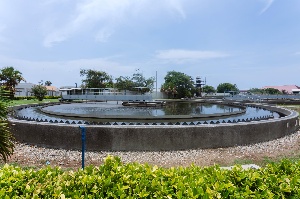- Home - News
- Elections 2024
- News Archive
- Crime & Punishment
- Politics
- Regional
- Editorial
- Health
- Ghanaians Abroad
- Tabloid
- Africa
- Religion
- Photo Archives
- Press Release
Editorial News of Tuesday, 15 April 2025
Source: www.ghanawebbers.com
Zoomlion: The hero or the villain in sanitation?
Not long ago, Ghana's urban areas struggled with waste management. Open drains were filled with filth. Rivers smelled of untreated waste. Heavy rains brought the threat of cholera. Children walked barefoot to unmanaged dumpsites, unaware of the dangers.
Sanitation workers faced mockery and low pay. They were largely invisible in society. But change arrived through Zoomlion Ghana Limited. Jospong Group and its subsidiary took on this challenge. Over two decades, they transformed Ghana’s sanitation landscape.
From Accra to Tamale, 36 waste treatment plants now exist. These include faecal sludge treatment plants and composting centres. This infrastructure was not present before Jospong's involvement. Their work restored dignity to sanitation jobs, once seen as undesirable.
Innovations like tricycles for last-mile collection empowered many young people. Thousands became sanitation entrepreneurs through these efforts. What was once dirty work is now a source of pride and income. Over 200,000 jobs have been created in the sanitation sector.
Despite this success, public frustration surrounds Jospong today. Many Ghanaians view Zoomlion as responsible for poor waste collection. However, the company is owed over GHS 1.6 billion by the government. This debt has built up over two years and crippled operations.
Unpaid bills have stalled logistics and delayed wages for workers. Trucks sit idle while fuel runs out, affecting services negatively. The issues stem from insolvency rather than incompetence.
Jospong continues to invest in infrastructure despite financial risks. They take loans in a challenging economic environment with high interest rates. Balancing their vision for a cleaner Ghana is difficult under financial pressure.
Is it fair to label them as villains? Jospong has turned sanitation into an employment engine for Ghana. They established the first structured waste treatment ecosystem in the country.
They helped reduce cholera outbreaks and improved water safety too. No other company has built as many treatment plants so quickly in Africa.
What would Ghana's sanitation look like without Jospong? Communities that once dealt with dumping now have modern facilities protecting public health.
In many places, waste is no longer a hazard but a resource instead—turned into compost or recycled materials safely treated to prevent disease.
Challenges remain within the system; some areas still struggle with waste collection issues.
The financial model needs regular government support to be sustainable.
However, blaming only Jospong ignores their significant contributions amid adversity.
Jospong Group may not be perfect but they are not villains either.
They are unsung heroes of Ghana’s sanitation revolution—underappreciated yet resilient.
It’s time for Ghanaians to remember this journey from dumpsites to dignity.
Acknowledging those who made it possible is essential for progress.











